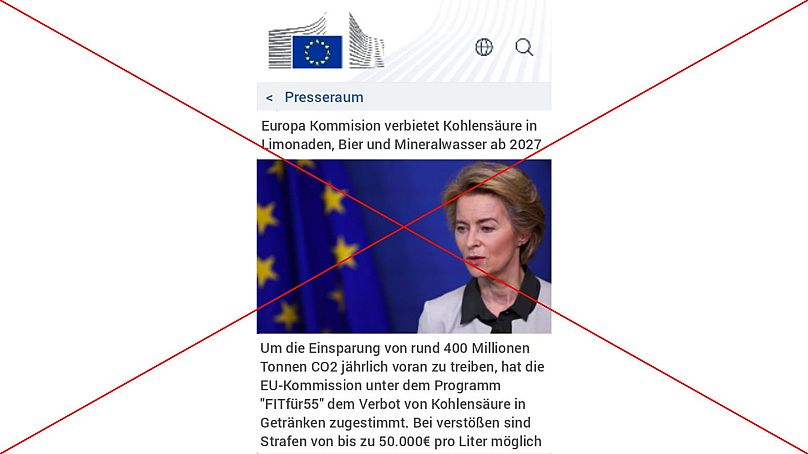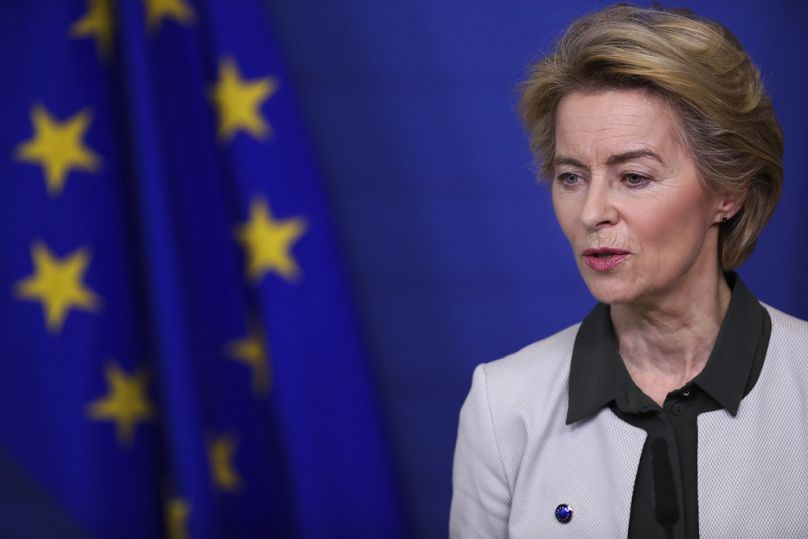Some claim that the European Commission is doing away with carbonated drinks as part of its "Fit for 55" climate programme.
An alleged screenshot from the European Commission website circulating online says that the EU will ban carbon dioxide in soft drinks, beer and mineral water from 2027.
 ADVERTISEMENT
ADVERTISEMENT
 ADVERTISEMENT
ADVERTISEMENT
It says that the Commission is doing away with CO2 in drinks to reduce around 400 million tonnes of annual emissions, as part of its "Fit for 55" programme.
Anyone flouting the new rule would be subject to fines of up to €50,000 per litre, according to the supposed webpage.
However, a search of the European Commission's website shows that no such statement exists, and the EU's "Fit for 55" package doesn't include any proposal to ban CO2 in drinks.
"Fit for 55" is a climate and energy initiative designed to reduce greenhouse gas emissions by at least 55% by 2030, compared to levels in 1990.
It "ensures a just and socially fair transition, maintains and strengthens innovation and competitiveness of EU industry while ensuring a level playing field vis-à-vis third country economic operators, and underpins the EU's position as leading the way in the global fight against climate change," according to the European Commission.
Some of its measures include CO2 emissions standards for vehicles, moving towards zero emissions from new cars and vans by 2035, as well as reforming the EU Emissions Trading System and bringing in a Carbon Border Adjustment Mechanism to place a carbon price on imports of certain goods to prevent carbon leakage and ensure fair competition.
However, there's nothing about banning carbonation in drinks and there's no credible source anywhere else that corroborates the claim.
The screenshot of the alleged commission press release also doesn't fully look the part, showing that it's not real.
In general, it doesn't look like any recent press releases and uses a photo of European Commission President Ursula von der Leyen from 2019, rather than a current one.
The photo was taken on 11 December 2019, according to AP, while von der Leyen was giving a statement in relation to the European Green Deal.
Additionally, in the alleged screenshot, the Commission's logo is blurred and low-resolution, and certain elements seen in real press releases are missing, such as the language selection box and a publication date.
There's also a typo in the headline: "Kommission" is supposed to be spelt with two Ss, and its official name in German is the Europäische Kommission, not the Europa Kommission.
EU initiatives are often the target of misinformation campaigns, as the measures contained within are either misinterpreted or deliberately exaggerated to whip up hysteria.
EuroVerify previously debunked a similar false claim that the EU is on its way to banning coffee after labelling caffeine as dangerous for human consumption.












